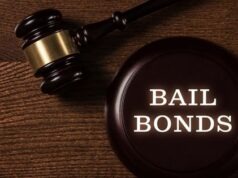A personal injury is defined as an incident that causes you an injury because of another party’s neglect. Incidents that fall under the personal injury bracket include situations such as dog bites, automobile accidents, slip-and-fall incidents, medical malpractice and more. You need to take specific steps if you feel as though you’ve fallen victim to a personal injury. The following are the steps that your family should take following a personal injury.


1. Document the Incident
Documentation is crucial, no matter what kind of injury you have experienced. You will need to collect documentation that proves you received an injury and shows the extent of the damage. It will be helpful if your documentation also reveals the person who is at fault for the incident. Documentation may include pictures, videos or witness statements. You may also want to contact the authorities so that they can create and file a police report. A police report will give you a breakdown of the accident, and it will give you documentation and a paper trail to provide to any interested parties.
2. Contact Your Insurance Provider
The next thing you should do after you have dealt with the immediate danger and regained your composure is to contact your insurance company. For example, you will need to file a claim with your auto insurance provider if you’ve been in a car accident. You will need to give the provider information about the accident and how it occurred. Be sure to take lots of photos and even video after the incident so that you have as much proof for your claim as possible. A Houston personal injury attorney states that the other driver’s insurance company “may try to place the blame on you, to minimize the extent of your injuries and delay payment.” This is why it is important to attain as much information as you can while you are there. You’ll also need to provide documentation such as police reports. Your insurance company may cover some of the costs to repair your vehicle after you pay your deductible.
3. Seek Medical Attention
It is important to seek medical attention as quickly as possible after you experience a personal injury. It is crucial to see a medical specialist even if you feel well after the incident. Many people don’t experience painful symptoms until hours or days after they get into a vehicular accident. That is partly due to the level of adrenaline in the body when they are involved in a high intense or panic inducing situation. You’ll need to receive a full diagnosis, treatment plan and medications that will help you recover from your incident. Try to keep a log of how you are feeling or any symptoms that are new within the first few weeks after the incident.
4. Gather the Necessary Documentation
Gather the evidence that you have such as witness statements, pictures, videos, audial recordings and the like. Also be sure to get the documentation that goes over your diagnosis and treatment plan from your medical professional. Collect all of the bills that you’ve accumulated because of the injury. Qualifying bills include hospital bills, doctor bills, therapeutic invoices, auto repair bills and more. You may also want to put your pay stub in the document collection so that you can prove how many work wages you’ve lost because of the incident. When you are done collecting all of your documentation, you will be ready to move to the final step of the process.
5. Contact a Personal Injury Attorney
A personal injury attorney is someone who can help you to get compensation when you’ve suffered a personal injury. There are two types of compensation a personal injury attorney can fight to collect for you. One type of compensation is called compensatory damages. They cover the costs for your medical expenses, lost work wages, therapies, auto repairs and the like. The other type of money that you may receive is called punitive damages. Judges only award punitive damages if the plaintiff qualifies for compensatory damages and the offender was extremely neglectful. In that case, you may receive additional money for your pain and suffering. You can contact a personal injury attorney today and schedule an initial consultation. You will talk to the attorney about your case and present the documentation you collected. The attorney will then offer to represent you if you qualify, and you can accept the attorney’s help.
Take Care of Yourself Now
Though a personal injury can cause serious problems, you don’t have to let it ruin your life. Take the steps mentioned above if a personal injury has affected you. You should be able to get the compensation that you deserve so that you can get back to the life you had before the injury.









